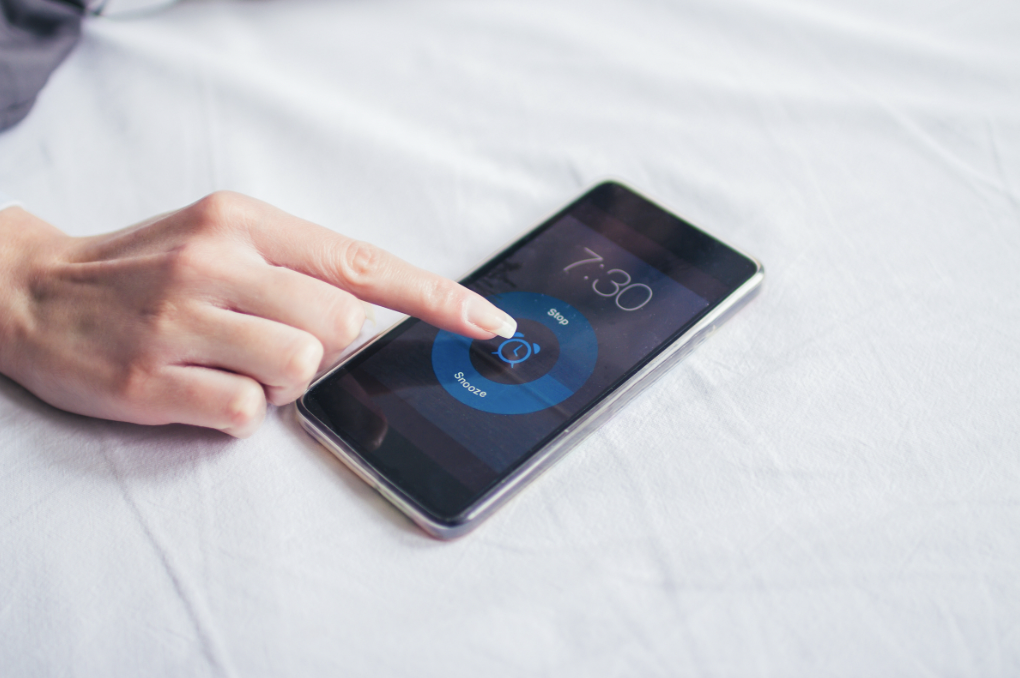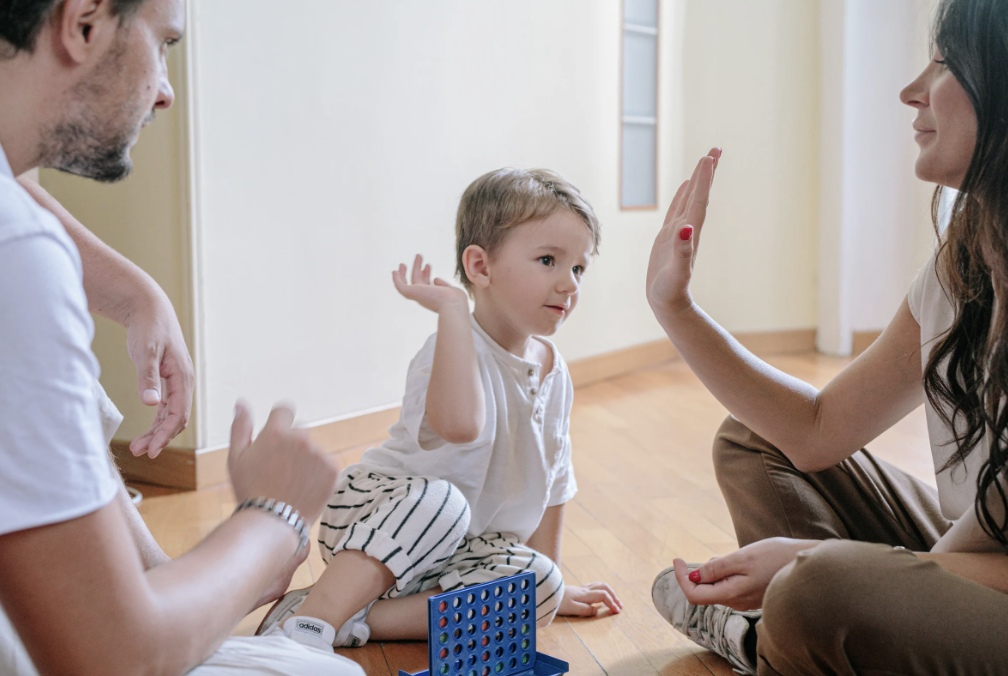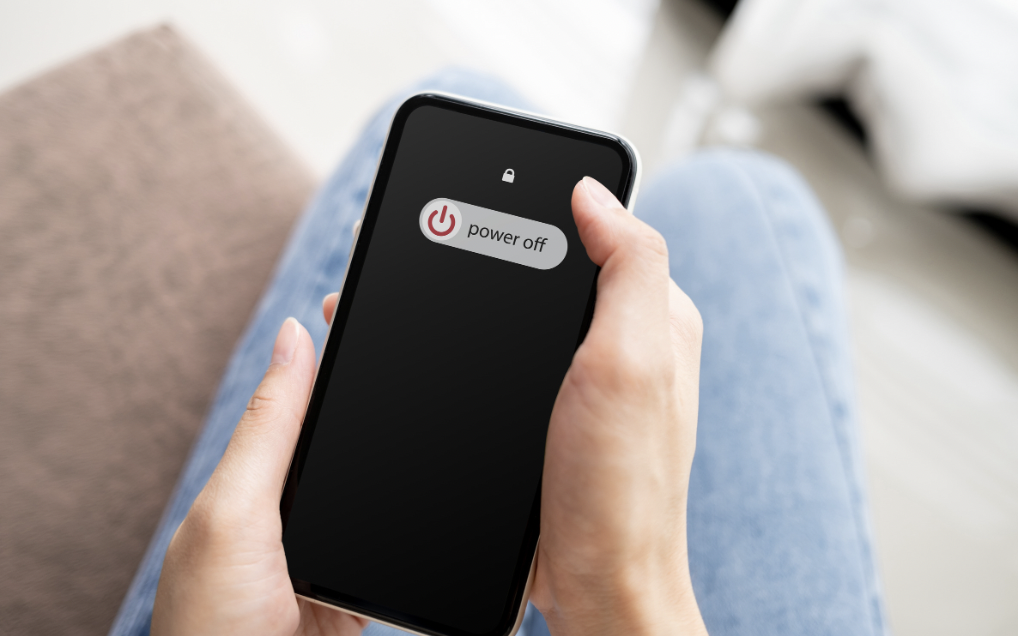Phones, and technology in general for that matter, are a huge part of the millennial’s and younger generation’s day to day life. Phones are mostly used as a way to communicate and engage with friends and family; a way to participate in online communities; and as a form of entertainment. So, we use our phones…quite a bit. Maybe to a fault, sure. But, we live in a technological era where devices keep us connected and engaged with people around the world. It’s simply a way in which we’ve evolved.
But we know that too much exposure to phones can affect our mental wellbeing and, ironically, our physical connection with people. In fact, phones can create a disconnect with our loved ones, especially our children. And that’s where some of us might want to make a change…for our children’s sake.
So Why Is Disconnecting From Our Phones So Important?

Children are like sponges, they observe every little thing we do. And in fact, constantly being on our phones around our kids can create a sense of abandonment for the child. They see the phone as being more important than they are. Babies and children crave our one on one attention, and being on our phones all the time can really impact their relationship with you and their mental wellbeing later on in life.
“Media authority Sherry Turkle (2012) has noticed that children compete with smartphones for parental attention. A recent poll among six thousand 6- to 12-year-olds (AVGtechnologies, 2015) confirms this: 54 percent said parents spend too much time on their phones, and 32% feel unimportant when parents are using them. Moreover, a handful of qualitative observation studies suggests that caregivers can become so absorbed by their phones that they ignore their children’s bids for attention (Hiniker, Sobel, Suh, Sung, & Lee, 2015; Radesky et al., 2014).” 1
Taking time away from our phones can be particularly hard for some of us parents. This is because we’re so used to being on our phones, as it gives us a sense of community and connection without physically being with people. However, making sure that we make our children feel secure and acknowledged is crucial for their wellbeing as well. So, here are ways to help us disconnect a little while still staying “connected”.
1. Set a Schedule for Your Daily Phone Use

Every day, you can set a certain schedule to when you want be on your phone. For example, you can choose to spend more time on your phone early in the morning when you wake up or later in the evening. Setting a schedule will give you a clearer sense of when it’s appropriate for you to be on your phone and making sure you have time in the day to spend some uninterrupted quality time with your child(ren).
2. Set a Specific Daily Time Limit for Being on Your Phone

It’s so easy to underestimate how much time we actually spend on our phones on a daily basis. But, if we actually calculated the time we spent on our phones vs the time we spent with our kids, we might say Yikes!
So, setting a daily time limit for using your phone can help you define the time you spend on your phone. It’ll make it more concrete and, in the end, you’ll be making sure to not overdue it without realizing it.
You can set the limit to 1 hour total, for example, for the entire day. Or you can set a time which you deem appropriate. This, again, will make it easier for you to ensure you spend some quality time with your little one(s).
3. Engage In More Video Calls Vs Texting

If you use your phone to chat a lot with people, you can opt to video chat and include your child in the conversation too. This way, they’re also able to engage in a two-way conversation, instead of seeing you looking down at your phone, messaging people, or scrolling through Instagram or Tik Tok.
Two-way conversations are ideal for children, especially if it’s a time where you’d like to chat with an adult. Including your child(ren) in what it is you’re doing on your phone will allow them to feel connected with you, and not like your phone time takes precedence to time alone with them.
4. Model Positive Phone Use

Communicating the importance of a balance with phones to your child(ren) can be a good way for them to eventually use one themselves in a heathy manner, when they’re ready for it. Explaining to them why you’re using your phone can help them understand that you’re (hopefully!) not just on it for pure entertainment for hours on end.
Letting them see that phones can be used to connect and communicate with people, or even for educational purposes (educational apps for children) is a way to model positive phone use for when the time comes for them to be using their own.
The last thing we want as parents is for our children to see phones as the only form of entertainment, or that it’s “normal” to be on our phones for long periods of time. And this naturally leads to the next point…
5. Engage in Screen-Free Activities With Your Kids

As mentioned previously, children mimic behaviours, especially the ones of their parents, whom they see most of the day. If we’re always on our phones, a child will think that it’s natural to be on a phone for long periods of time; whether it’s for entertainment or connecting with people online.
One on one time with your child(ren) means the world to them. It doesn’t need to be a crazy activity that needs a lot of planning. You can go to the park with them, play ball, do a puzzle, or draw! It doesn’t take much. The most important part is your PRESENCE!
6. Establish Tech-Free Zones Around the House

If you’re having trouble letting go of your phone because you feel like you just carry it with you everywhere…try this.
You can establish some areas in your home where phones “aren’t permitted”. For example, the dining room or eating area can be one of those “tech-free zones”. So, during dinner time, phones are put away in another area, where you’re less likely to just grab it. This will allow for quality one on one time with your family and encourage two-way conversations.
7. Turn Off Notifications

Sometimes, it’s hard to resist the urge to pick up your phone when you hear it ringing all the time with notifications. So, if you find your phone too distracting because it keeps “pinging!”, turn off the notifications! Either put them on silent mode or turn on your Do Not Disturb toggle. On most phones, you can even set a schedule for which you want the Do Not Disturb setting to stay on. That urge to run to your phone will start going away slowly but surely if you’re consistent with this approach!
To Conclude
Listen…in this digital age, I get it…Phones are and always will be part of our daily life. Although phone usage can be a great way to stay connected with people, phones can have a detrimental impact on parent-child relationships and on everyone’s mental wellbeing as well. It’s up to us as parents to make this change and hopefully the 7 tips that were provided in this article can better help you achieve this; to disconnect from your phone while still staying connected.







2 comments
I absolutely agree with you. The idea is great, I agree with you.
There is something in this. Thanks for your help in this matter, now I will know.